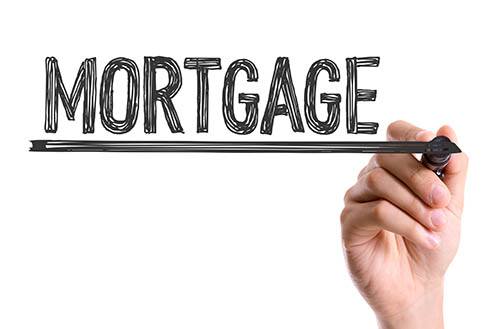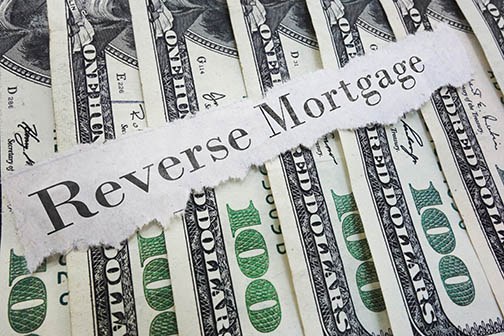 There is always uncertainty in the market in an election year, but many people are wondering exactly what kind of impact Donald Trump’s election will have on their mortgage and the real estate options available. Whether you are still paying off your home or have been shopping around for the right one, here are some possibilities for the real estate market following the results of the 2016 election.
There is always uncertainty in the market in an election year, but many people are wondering exactly what kind of impact Donald Trump’s election will have on their mortgage and the real estate options available. Whether you are still paying off your home or have been shopping around for the right one, here are some possibilities for the real estate market following the results of the 2016 election.
An Increase In Luxury Properties
With the release of Donald Trump’s tax plan which provides the most sizeable tax cuts to the wealthy, it could be the case that there will be an increase in the demand for high-end properties which may lead to less availability and a higher price point. As this kind of demand could also work to bump up the median price of real estate in urban areas, it could have an adverse impact on low-income earners who may see themselves priced out of a more expensive market.
Rising Mortgage Rates
Most people that have been perusing the market recently have heard about the low interest rates that make purchasing a home a good financial decision. However, following the uncertainty of the election, interest rates are on the rise. While the sense of instability may persist until potential homebuyers know more, this boost in the rates since the election may mean that many buyers will decide to hold off until the new year.
A Loosening Of Regulations
The concept of the cost involved in regulation was something that Donald Trump brought up many times on the campaign trail, and this could be a sign that he is ready to make adjustments when it comes to housing regulations. While there may be little he can do at the local level, if regulation changes take hold, this could mean more loan opportunities for those with a poor credit history who may not have been a shoe-in for a mortgage previously.
With the fluctuations of the market dependent upon a variety of factors, it’s hard to say what will occur in the mortgage market in the next few months and years. However, with mortgage rates on the rise and the potential change in regulations, it could continue to fluctuate until there is more certainty on the horizon.
 Selling a standard home is fraught with enough concerns about marking it at the right price and staging it properly, but it’s an entirely different ball game when it comes to luxury property. If you’re planning on selling your high-end property and are trying to determine what sets it apart from the average home sale, here are some things to consider before putting it on the market.
Selling a standard home is fraught with enough concerns about marking it at the right price and staging it properly, but it’s an entirely different ball game when it comes to luxury property. If you’re planning on selling your high-end property and are trying to determine what sets it apart from the average home sale, here are some things to consider before putting it on the market. The monthly mortgage payment can be burdensome for many, but it’s possible you’ve thought of trying to pay it down more quickly. Without getting a new job or working overtime, here are some tips you can use on a daily basis to save additional funds and pay off your mortgage at a swifter rate.
The monthly mortgage payment can be burdensome for many, but it’s possible you’ve thought of trying to pay it down more quickly. Without getting a new job or working overtime, here are some tips you can use on a daily basis to save additional funds and pay off your mortgage at a swifter rate. There are a lot of different factors that go into selling a home for the first time that can make it a stressful process, but there are a few things home sellers should avoid for a successful sale. If you’re going to be putting your home on the market in the near future and are hoping for quick success, here are some common mistakes you’ll want to be sure to bypass.
There are a lot of different factors that go into selling a home for the first time that can make it a stressful process, but there are a few things home sellers should avoid for a successful sale. If you’re going to be putting your home on the market in the near future and are hoping for quick success, here are some common mistakes you’ll want to be sure to bypass. Economic news was impacted by the Martin Luther King holiday on Monday and the Presidential Inauguration on Friday. Readings released included reports on inflation, the National Association of Home Builders Housing Market Index and Commerce Department releases on housing starts and building permits issued. Weekly reports on mortgage rates and new jobless claims were released as scheduled.
Economic news was impacted by the Martin Luther King holiday on Monday and the Presidential Inauguration on Friday. Readings released included reports on inflation, the National Association of Home Builders Housing Market Index and Commerce Department releases on housing starts and building permits issued. Weekly reports on mortgage rates and new jobless claims were released as scheduled. Many people look at a smaller living space and think that there are a lot of limitations imposed. However, a more miniature home can offer up the opportunity to be inventive with design and get creative about your abode. Whether you live in small apartment now or are thinking of downsizing in the future, here are some ideal ways to make the most of your pint-sized pad.
Many people look at a smaller living space and think that there are a lot of limitations imposed. However, a more miniature home can offer up the opportunity to be inventive with design and get creative about your abode. Whether you live in small apartment now or are thinking of downsizing in the future, here are some ideal ways to make the most of your pint-sized pad. January’s National Association of Home Builders Housing Market Index dipped two points from December’s revised reading of 69 to 67; the index reading forecast for January was also 69.Analysts said that January’s reading was the second highest (after December 2016) since the peak of the housing bubble in 2005. January’s dip in builder sentiment was attributed to easing of builder enthusiasm, which spiked right after the U.S. presidential election. To put January’s home builder confidence reading in context, NAHB says that any index reading over 50 indicates that more builders than fewer have confidence in housing market conditions.
January’s National Association of Home Builders Housing Market Index dipped two points from December’s revised reading of 69 to 67; the index reading forecast for January was also 69.Analysts said that January’s reading was the second highest (after December 2016) since the peak of the housing bubble in 2005. January’s dip in builder sentiment was attributed to easing of builder enthusiasm, which spiked right after the U.S. presidential election. To put January’s home builder confidence reading in context, NAHB says that any index reading over 50 indicates that more builders than fewer have confidence in housing market conditions. Many people are aware of the financial commitment that is involved when investing in a home, but what that amounts to is different for every person. From what you can afford to what a lender will allow, there are plenty of details involved in determining the right home for you. If you’re not quite sure what the right price is, here’s how to approach home ownership and determine your debt-to-income.
Many people are aware of the financial commitment that is involved when investing in a home, but what that amounts to is different for every person. From what you can afford to what a lender will allow, there are plenty of details involved in determining the right home for you. If you’re not quite sure what the right price is, here’s how to approach home ownership and determine your debt-to-income. Last week’s economic reports included readings on job openings, retail sales and consumer sentiment in addition to weekly reports on new jobless claims and Freddie Mac’s survey of mortgage rates.
Last week’s economic reports included readings on job openings, retail sales and consumer sentiment in addition to weekly reports on new jobless claims and Freddie Mac’s survey of mortgage rates. There are a variety of mortgage products out there that serve the needs of different homeowners, but for the uninitiated it can be hard to know what will work best for them. If you happen to be close to retirement and are looking at options that will be more financially beneficial for you, here are the details on a reverse mortgage and how this product can work for you.
There are a variety of mortgage products out there that serve the needs of different homeowners, but for the uninitiated it can be hard to know what will work best for them. If you happen to be close to retirement and are looking at options that will be more financially beneficial for you, here are the details on a reverse mortgage and how this product can work for you.